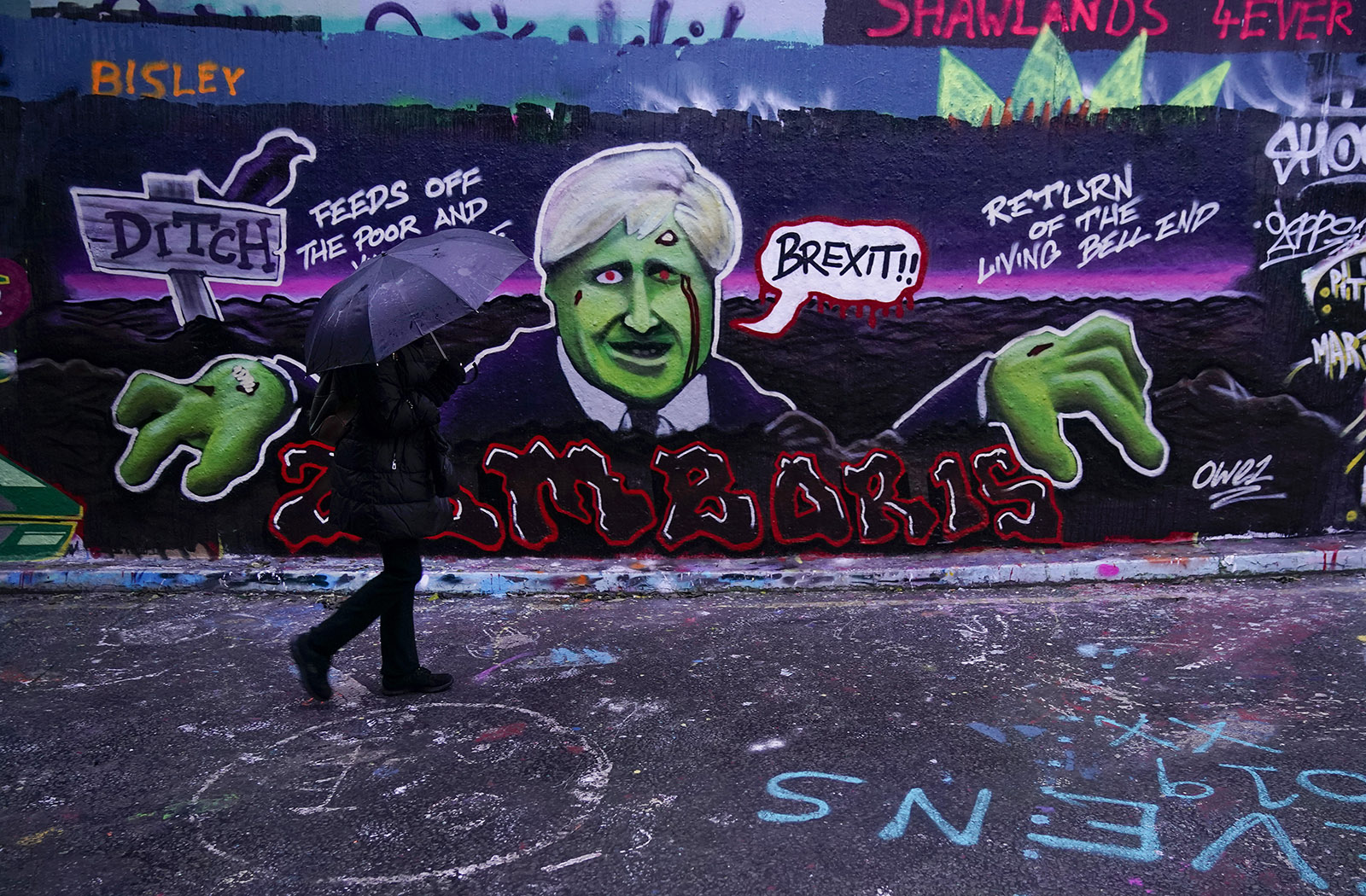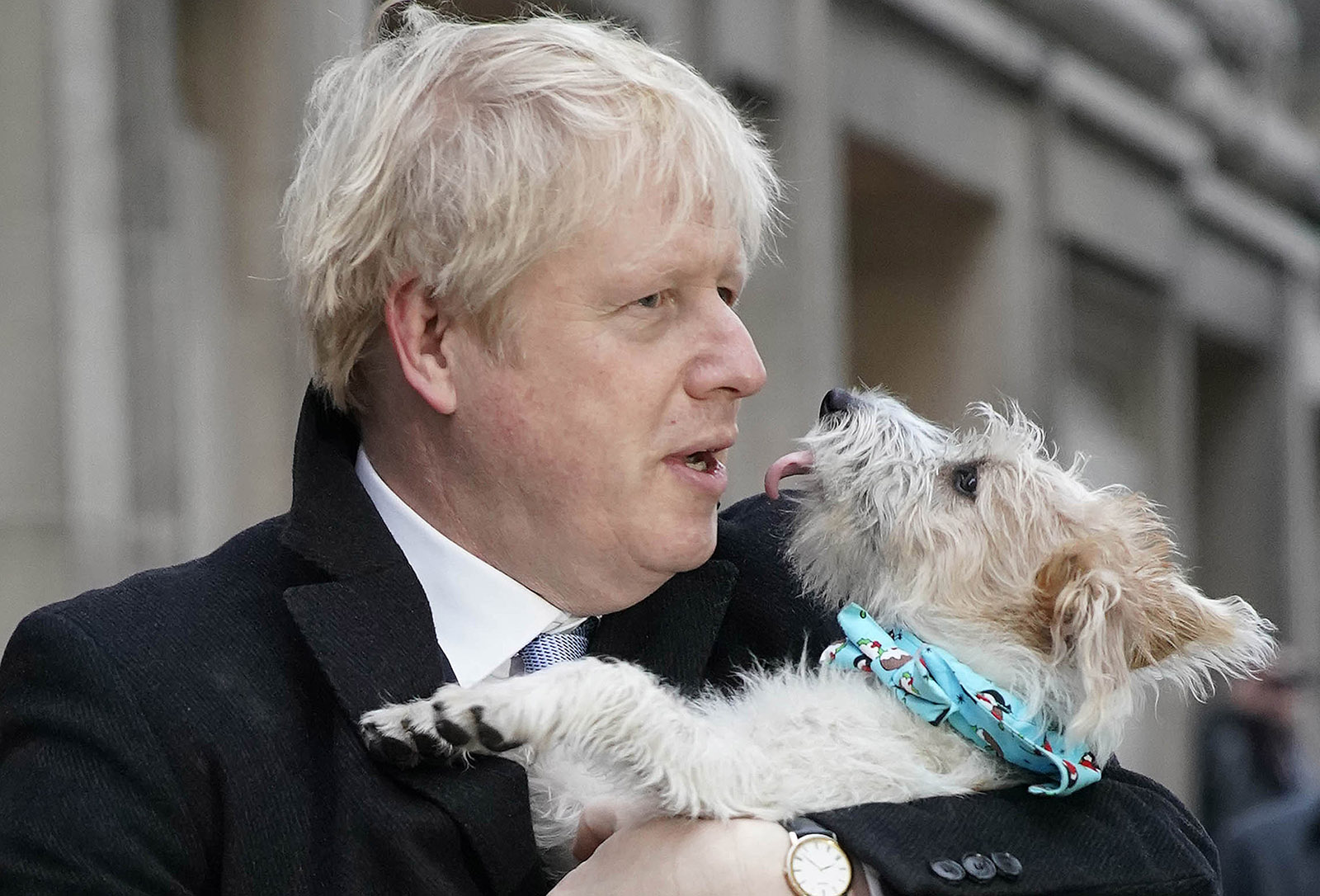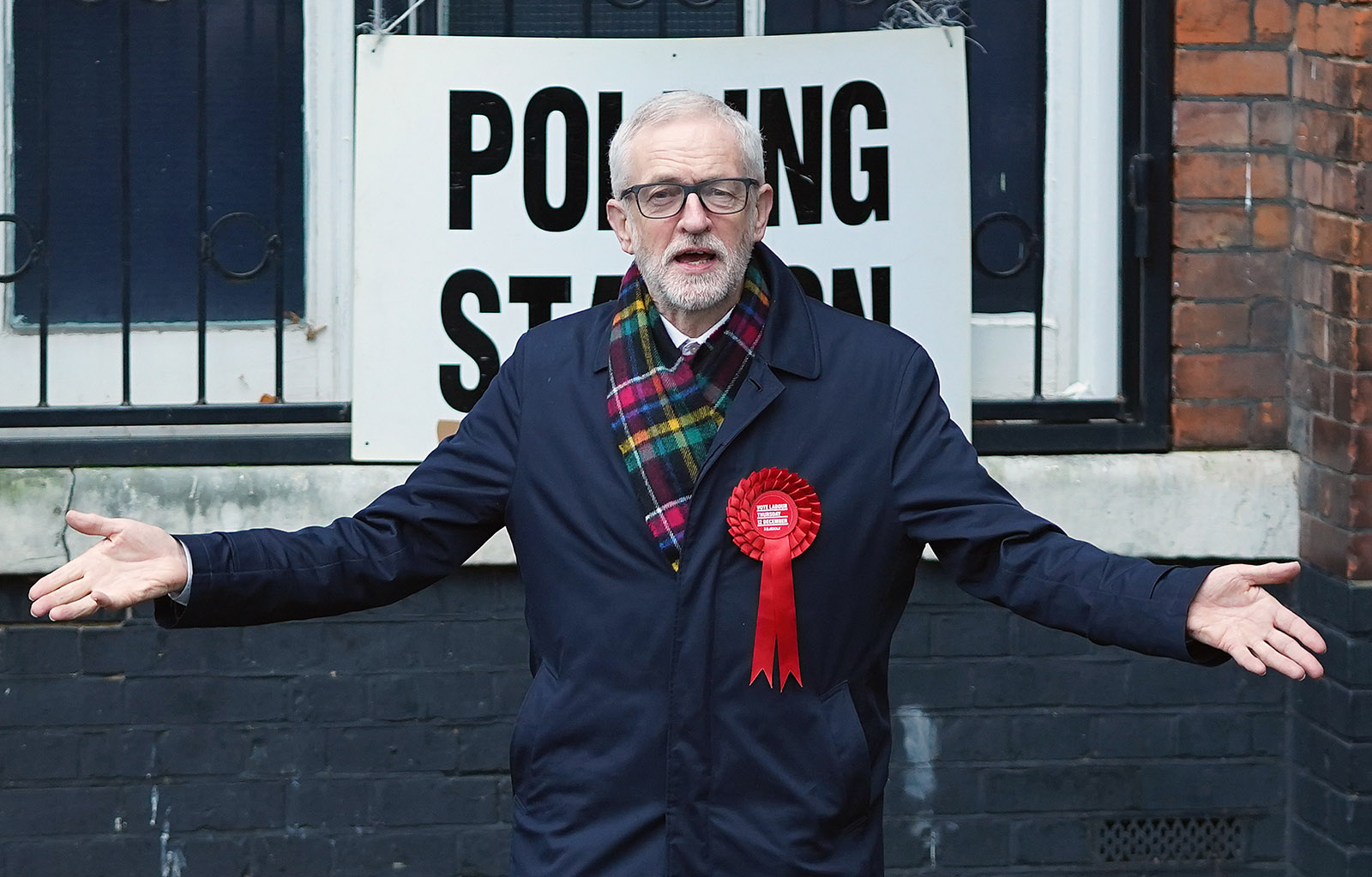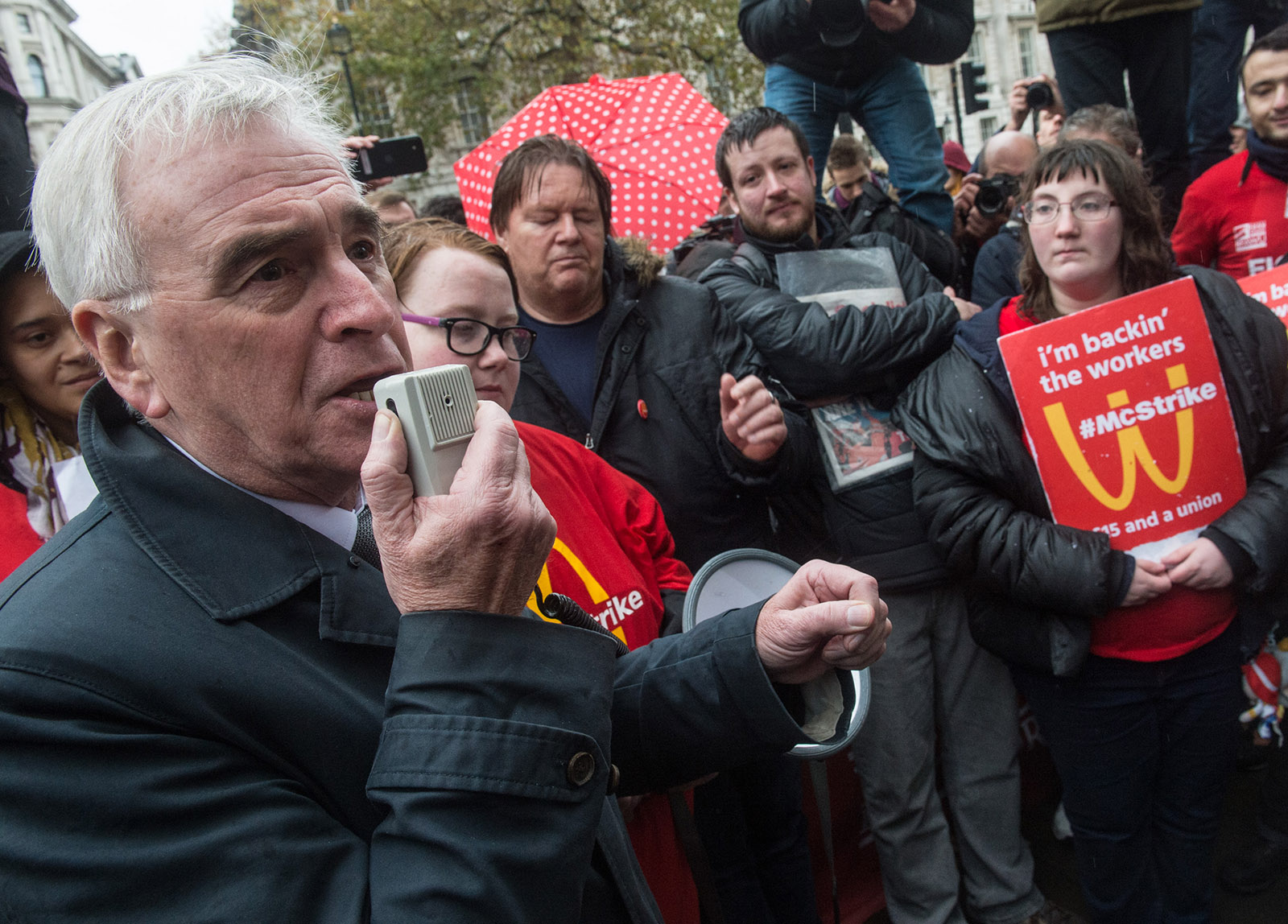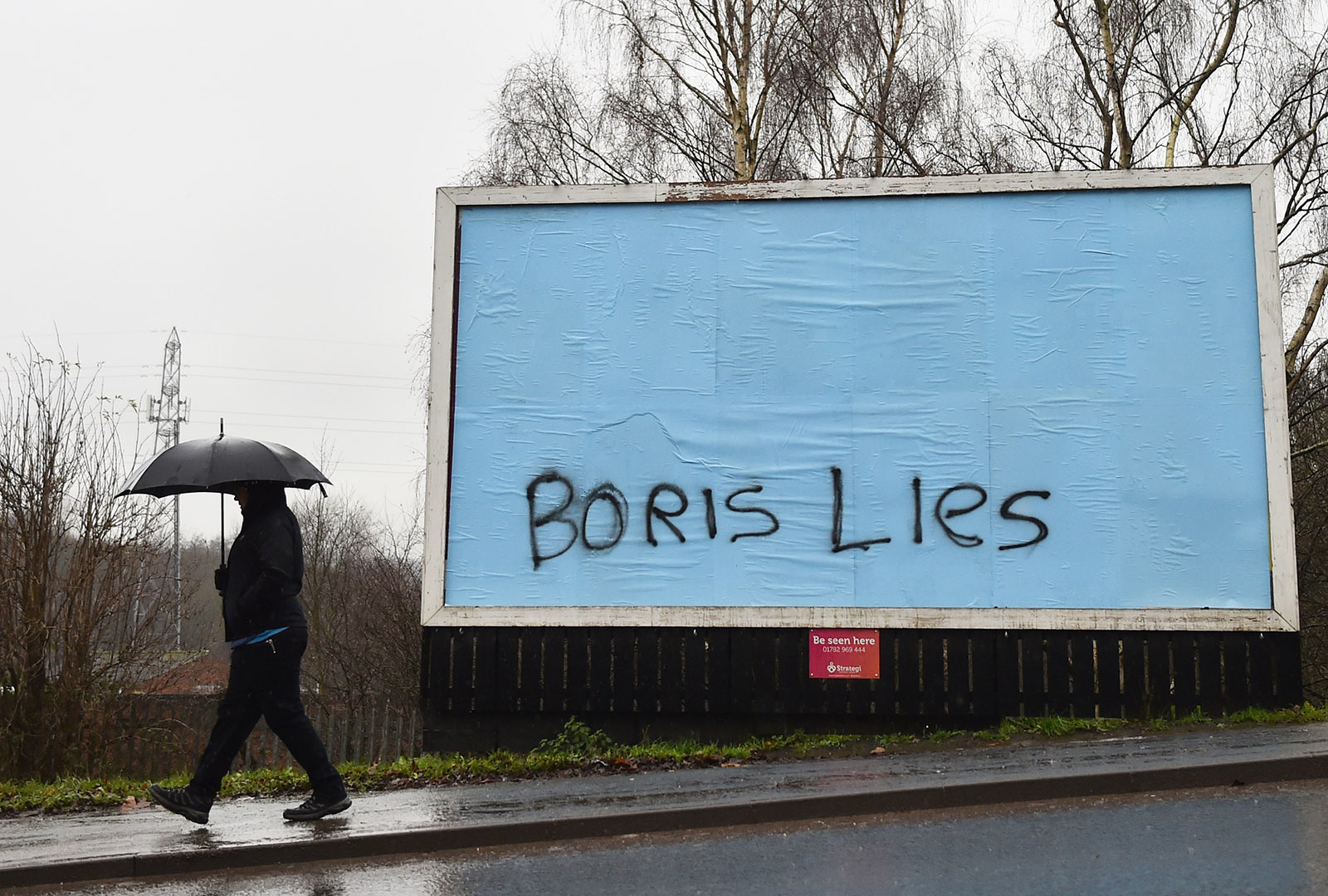The immediate, clear consequence of the UK election of December 12, 2019, is that Boris Johnson’s Conservative Party has succeeded where Theresa May’s failed in the last general election, in 2017—by winning an emphatic parliamentary majority that can pass the legislation necessary to facilitate Britain’s departure from the European Union. The faint irony of that two-year hiatus and the handover of party leadership from May to Johnson is that the latter’s deal is rather worse—from the Brexiteers’ point of view—than the one May repeatedly failed to get past Parliament. Nevertheless, the 2019 general election will go down as the moment British voters in effect voted a resounding “yes” in a de facto second referendum on Brexit and gave Boris Johnson a mandate to make his deal law and attempt to meet the latest Brexit deadline (January 31, 2020).
Far-reaching though the effects of this punctuation mark in the Brexit story will be, the 2019 general election may change the landscape of British politics and the fabric of its society in even more profound and decisive ways.
Brexit’s compromise over the status of Northern Ireland, half-in and half-out of Europe, is an unstable constitutional non-settlement that risks the fragile peace that’s held there since the 1998 Good Friday Agreement, while accelerating the hopes of some for a United Ireland. But the future of the Union faces a still more pressing challenge from renewed calls for a referendum on independence for Scotland, where a large majority of voters favor continued membership in Europe. The specter of “the breakup of Britain” that has long haunted the United Kingdom may materialize at last—just at the moment when English nationalists are celebrating their Brexit victory.
So much for the political landscape; what of the social fabric? A fourth successive defeat for the Labour Party, with its most ambitious anti-austerity program yet, and an outright win for a Conservative Party that has purged its moderates have sharpened dividing lines, squeezed the liberal center, and broken consensus into polarity. A minority of Britons—roughly a third, who will now see themselves as effectively disenfranchised—voted for a radical expansion of the public sector, a great leap forward toward a socialist Britain. But the plurality chose a party that, while promising more spending, has actually recomposed itself around a reanimated Thatcherite vision of exclusionary, anti-egalitarian, moralizing social Darwinism. Some part of the Tory electoral coalition might have more welfare-chauvinist reflexes, but the greater part of it distrusts the state, resents the taxation that pays for it, and would like to shrink both.
What is at stake after this election, then—in a Britain that might soon mean, to all intents and purposes, England & Wales—is the future of what has made it a reasonably civilized country since 1945: social democracy.
*
This final reckoning in the long and painful saga of Brexit was, in many ways, already priced in. There was no plausible pro-European Remainer option on the ballot. This general election was thus a final defeat for the Remain cause.
It might at one time have been otherwise—Britain’s Remainers took to the streets in vast numbers on several occasions over the past three years to protest Brexit. But the Liberal Democrats overplayed their hand as “the party of Remain” by promising not a second referendum, but a revocation of Article 50—canceling Brexit without a second vote at all. For its part, the Labour Party led by Jeremy Corbyn continued its policy of trying to triangulate an impossible compromise on Brexit. It offered a second referendum on a putative deal that a Labour government would renegotiate with the European Union, a deal in which the party’s leader had so little conviction that, during the election campaign, he declared that he himself would abstain from campaigning on it, for or against, in a second referendum.
The polling evidence was always equivocal on whether a second referendum was really the solution Remainers ultimately sought (that is, undoing the 2016 result), but what is not in doubt is that the Remain case was hobbled by a lack of coherent political leadership. The Labour Party, always the main opposition party to the Conservatives in a two-party-dominated parliamentary system, bears a heavy responsibility for declining to lead the opposition to Brexit.
The legitimate argument for Labour’s equivocation on Brexit is that although its own party membership is 85-90 percent Remain, it still wins parliamentary seats—or did—in predominantly working-class constituencies in the Midlands, North, and Northeast of England (Scotland is another matter), parts of the country that the party regards as its historic heartland. In these areas, there are blue-collar voters who are older, more socially conservative, more nationalistic, and generally more anti-immigration than Labour’s far more progressive activist membership, yet the party feels, by all ties of history and sentiment, that they are nevertheless its people. But even in these heartland constituencies, polling evidence shows that actual Labour voters still broke Remain, not Leave; and that a good many of those “natural” Labour voters already defected, either first to the United Kingdom Independence Party or later to its successor Brexit Party. Many of them will have voted Tory in this election on the basis of Johnson’s promise to “get Brexit done.”
Advertisement
Perhaps the greatest tragedy of Brexit for Labour, though, is not that it failed to lead opposition to Brexit but that it agreed to the referendum in the first place. This was a catastrophic error. The idea of holding a Brexit plebiscite was a Conservative election pledge; Labour not only was not bound by the policy, but could have opposed it, labelling it a “Tory referendum,” refusing to participate in the pre-referendum campaigning, denying it legitimacy, and repudiating any result. In the 2015 parliamentary debate on the referendum-enabling legislation, Labour’s foreign affairs spokesman said what was transparently true and everyone could see: that the Conservatives’ motivation in holding a referendum was “in order to try to deal with splits.” Yet here was the Labour Party supporting passage of the bill.
Why on earth help out your political enemy with its internal divisions? The result has been that the Conservatives have emerged reunited, stronger than ever, while Labour itself has been riven and weakened by splits over Brexit.
Parts of Labour’s manifesto program were undoubtedly appealing to many voters, but in this electoral cycle the Tories’ crude but effective message on Brexit trumped anything Labour had to offer—and Corbyn’s negatives were even higher than Johnson’s. After such a heavy defeat, the other consequence of the 2019 election will be that Jeremy Corbyn steps down. He has now led the Labour Party not just to record its third and fourth successive election defeats—it lost in 2010, 2015, and 2017—but to mirror its worst result, by parliamentary seat count, in postwar history: the nadir of 1983. This is a truly cataclysmic outcome for Labour.
*
1983 was the year Jeremy Corbyn himself was first elected to Parliament. Indeed, he only makes sense as a political animal when seen through the prism of the left’s sectarian struggles in the run-up to that election. The party had recently gone through a bruising internal political struggle in which a leftist grassroots effort to install Tony Benn as a radical deputy leader had only just been defeated at the party’s annual conference by the center-right unions with their bloc vote behind Denis Healey. The leader who was meant to hold the party together, Michael Foot, was a respected but aging left-wing intellectual; he did not enjoy public confidence.
Tony Benn believed in nationalizing “the commanding heights” of the economy—not just the utilities and railways (then still in state ownership) but also large sectors of industry, including manufacturing, despite the dismal performance of many previously nationalized companies. Added to this, the Bennite surge among the activist membership of the party, which included Corbyn, was urging a policy of unilateral nuclear disarmament. This position, which did not enjoy popular support, would have made Britain’s place as a permanent member of the UN Security Council untenable and sidelined the nation in NATO. The thirty-nine-page manifesto with which Labour went into the 1983 election was famously described by one Labour MP as “the longest suicide note in history.”
The ideological division had also resulted in the formation of the Social Democratic Party, a breakaway group of centrist-liberal Labour MPs. Even more than the manifesto, it was this split that ensured 1983 was a rout. Within the Labour Party’s parliamentary rump, a hardline socialist minority of two dozen or so MPs formed the Socialist Campaign Group to keep the Bennite flame alive; Corbyn became the group’s longtime secretary. These leftist dissidents often voted against their own party line over the years, particularly on matters of foreign policy and national security in which the Labour leadership wanted to back the Tory government.
The Campaign Group also disapproved of efforts by the party’s new leader, Neil Kinnock—a former Bennite-turned-reformist—to make Labour electable again. In the mid-1980s, Kinnock staked his leadership on expelling a Trotskyist faction known as Militant Tendency, which had made “entryism” of the Labour Party its political project, with some success in taking over local party organizations, most notably in Liverpool.
Corbyn was not a Trotskyist, though he opposed the party’s policy of outlawing such factions. Throughout the 1980s and 1990s, Corbyn pursued his dogged, hard-left politics in a marginal way, only occasionally achieving national notoriety for his public support of Sinn Féin—at a time when IRA guns and bombs were killing not only British soldiers and Northern Irish police officers, but also English civilians on the mainland. It has only been since Corbyn himself became leader, in 2015, that his record of international solidarity with other terrorist groups—those that he saw as opposed to US imperialism—came under serious scrutiny, in particular his comradely consorting with Hezbollah, Hamas, and the Palestine Liberation Organization.
Advertisement
Contact with such groups is not automatically disqualifying, but any responsible British politician would want to take care that such initiatives in the cause of peace and dialogue did not cut across official diplomatic channels. But that was not Corbyn’s concern. He and others of his persuasion regard the US imperium as the source of all evil in the world—and in the Middle East, that means seeing Israel as America’s proxy.
This goes to the heart of the anti-Semitism issue that so bedeviled Corbyn’s leadership of Labour. Few people believe that he himself is an anti-Semite, but did he care to discipline anti-Semitism among his own leftist supporters in the party? Clearly not. Why not? Because, in his view, the real threat to progress and peace in the world is the US and its ally Israel. Ergo, anyone who supports Israel—which would encompass the majority of British Jewry—is suspect. Corbyn’s opposition to American imperialism, with its fundamentalist critique of Israel, simply overmastered the bit of his antiracism convictions that cares about anti-Semitism. Added to which, for Corbyn’s supporters, Labour’s anti-Semitism problem is nothing more than an establishment media confection turned into a cudgel by his political enemies. That denialism papers over Corbyn’s consistent refusal to deal with the toxic elements within his party, a failure that led Britain’s chief rabbi to declare during the election campaign that Corbyn was “unfit for office.”
And then there was Brexit—and Labour’s muddled, almost indecipherable position on a political issue of the utmost historic import. We know Corbyn’s personal stance: Euroskeptic. He voted against Britain’s membership in the European Common Market in the 1970s and never wavered from the dissident leftist view that the EU is essentially a capitalist club. (One thing Corbyn cannot be faulted for is deviating from his principled positions: it is hard to discern any issue on which he has changed his mind in his entire political life.) The Brexit policy he espoused after the referendum result—simply to negotiate a “softer” deal that would have preserved the customs union and EU rules on workers’ rights—was consistent with the idea of “Lexit,” or a Left Brexit. Lexit would entail quitting Europe, with its consensus over firmly regulated capitalism balanced by generous welfare provision, in order to build “socialism in one country.” That might once have been a noble quest, but it was a quixotic one in today’s highly integrated world economy where capital is free to roam.
*
How far post-Brexit Britain will be from that socialist dream of a New Jerusalem is yet to be seen. The reality in years to come will be a smaller UK economy and—especially for any left-wing Labour government—a sharply reduced ability to borrow, with steeply raised costs for doing so. What, in any case, is the prospect of a left-wing government?
The history is not encouraging: after 1983, Labour lost the next two elections under Neil Kinnock. Following an eighteen-year dearth during the Thatcherite hegemony, Labour finally returned to electability in 1997 with a charismatic centrist technocrat named Tony Blair. The merits or otherwise of what followed in the years of New Labour are another argument, but Kinnock—the prophet who led his party out of the wilderness—deserves a final say. Viewing Corbyn’s election as leader with dismay, Kinnock declared that he, then aged seventy-four, did not expect to see another Labour government in his lifetime. In other words, he foresaw a long, stony road ahead for Labour before it swung back from its detour into socialist purity and tacked toward a moderate reformist politics capable of mustering a winning electoral coalition.
Even after Corbyn eventually departs, the Corbynite machine will endure. The party’s membership votes to choose a leader, but the national executive committee (the party’s most important governing body) has a great deal of control over the process. A socialist caucus comprising parliamentary loyalists, activists from the left-wing Momentum movement, and nominees of the powerful UNITE union has a lock on the NEC and will surely play the part of kingmaker. The most likely candidate would appear to be the shadow chancellor, John McDonnell, if he chooses to run. (Even before the election, “senior party figures” were reportedly briefing that he would become interim leader if Corbyn steps down.)
Though in many respects cut from the same ideological cloth as Corbyn, of Labour’s early 1980s hard left, McDonnell doesn’t have the same liabilities of Corbyn’s solidarity with terrorist groups. And he’s a vastly more skillful politician, capable of putting ideology aside for tactical advantage—this past year, for example, he succeeded in getting an amply fair hearing from the Financial Times for his economic plans.
McDonnell would also be well-placed to galvanize the hundreds of thousands of mostly young people who have joined the party in recent years. Under changed party rules after 2014 that gave individual members greater say in the leadership election, these new members have brought a powerful wave of energy and fervor to Labour’s campaigning organization—rather as the Democratic Socialists of America have to the progressive wing of the Democratic Party. Part of the misfortune of the Corbyn years has been that so much enthusiasm among a post-cold war generation for whom the word socialism has no taint of Soviet-bloc police-states has been wasted on such a flawed and limited leader. Jezza was no Bernie.
Assuming McDonnell or someone like him becomes Labour’s next leader, what are their chances of making the party electable again? The challenge is already formidable—not least because the ideological gulf between Labour’s activist base and the rest of the country is wider than it’s been at least since the early 1980s. There is potential for a gifted leader to close that gap: there is no doubt that Labour’s policy program, laid out in its 2017 manifesto and the still more radical 2019 version, polls well with the austerity-weary British public. But Labour faces an epochal threat to its capacity ever to win a governing majority in Westminster if Scotland leaves the Union.
The political logic of Scottish independence becomes more than compelling with the delivery of Brexit by a Johnson-led new Conservative government. With the Scottish National Party’s very strong showing in this election, that logic is virtually irresistible. The last referendum on the national question, in 2014, resulted in a 45:55 decision to stay. But Scottish voters chose Remain in the 2016 EU referendum by a thumping 62:38, and the English Conservatives’ casually reckless treatment of Northern Ireland in the intervening Brexit negotiations will not have reassured any Scots that London has their interests at heart any more than it has Ulster’s. The SNP has signaled unambiguously that it will demand a new IndyRef; its hand is even stronger now, having secured forty-eight out of a possible fifty-nine Scottish seats.
If the nationalists succeed in that vote, then an SNP-led departure of Scotland from the Union will be a knife to the heart of social democracy in the United Kingdom. Labour lost its “red wall” north of the border after the Blair–Brown years, but the SNP’s hegemony has been built on its transformation from an insurgent nationalist party to a mature social-democratic one, replacing Labour as the guardian of the health service and the public good; in pre-election polling this month, Labour’s vote in Scotland had all but collapsed to percentages in the mid-teens. The breakup of the Union would entail the removal of Scotland’s seats from the Westminster Parliament. That represents a huge new obstacle to Labour, forced thence to compete as essentially an English and Welsh party, without even the possibility of a social-democratic coalition with the SNP.
*
British social democracy, such as it is, is almost entirely the legacy of the Labour government of 1945–1950. The Attlee administration is remembered as the most radical and reforming in British political history, but was it even socialist? Its crowning achievement was to create a welfare state—based on the ideas of two Liberal economists, John Maynard Keynes and William Beveridge. The (general) secretary of the Labour Party of that time, Morgan Phillips, is mostly remembered for observing that his party’s ideology owed more to Methodism than to Marxism. Above all, perhaps, social democracy in Britain was born in a unique moment of class solidarity and national unity forged by wartime mobilization.
When the postwar consensus that had sustained British social democracy broke down, thirty or so years later, Margaret Thatcher came to bury it. She persuaded many Britons, including working-class English voters, that there was “no such thing as society,” that social mobility could come not by universal provision and government assistance but only by individual bootstrapping and personal choice. That message never resonated loudly in Scotland and Wales, but it chimed with the common sense of the suburbs and market-town England, the milieu that Thatcher herself came from.
Capitalizing on popular disillusion with New Labour in the post-2008 Recession, the Conservatives applied the shock therapy of austerity, ruthlessly pruning back the welfare state in ways that Thatcher could only have dreamt of. (Austerity’s architect, the then-presiding Tory chancellor George Osborne, has been rewarded, for what he no doubt regards as his personal merits, with no fewer than six fee-paying jobs—including the editorship of what is left of London’s daily paper, the Evening Standard, which is owned by the son of a Russian oligarch: a more than symbolic register of how tightly braided the press and political economy are in today’s Britain.) Thatcher’s heirs in the Conservative Party have succeeded in building on this hegemony by casting the European Union as the new Nanny State that Britons needed to cast off in order to realize their true destiny. Blair’s New Labour only ever mounted a lukewarm defense of the EU; Labour under Corbyn abandoned even that.
The election of a Johnson-led Conservative government signals the effective end of national interest in the Brexit drama. Now it will be a matter of laborious legislative scrutiny opening the way to a prolonged period of trade negotiations—all technical details that will be too boring for most voters to trouble with. Johnson identifies as a “one-nation Tory,” in the Churchillian tradition of class conciliation and national unity, but the party he leads has resolved its internal rift by expelling its pro-European moderates and recapturing the voters it had been losing to UKIP and the Brexit Party: it is now more right-wing, more nationalistic, more avowedly Thatcherite than it has been for a generation—an absolute reversal of its former leader David Cameron’s project of making the party “kinder” and more consensual.
Social-democratic Britain is already a tattered, damaged thing. The question is what will be left to save by the time the Labour Party can win a general election again.
This essay was updated to reflect the final tally of the SNP’s parliamentary seat count.


